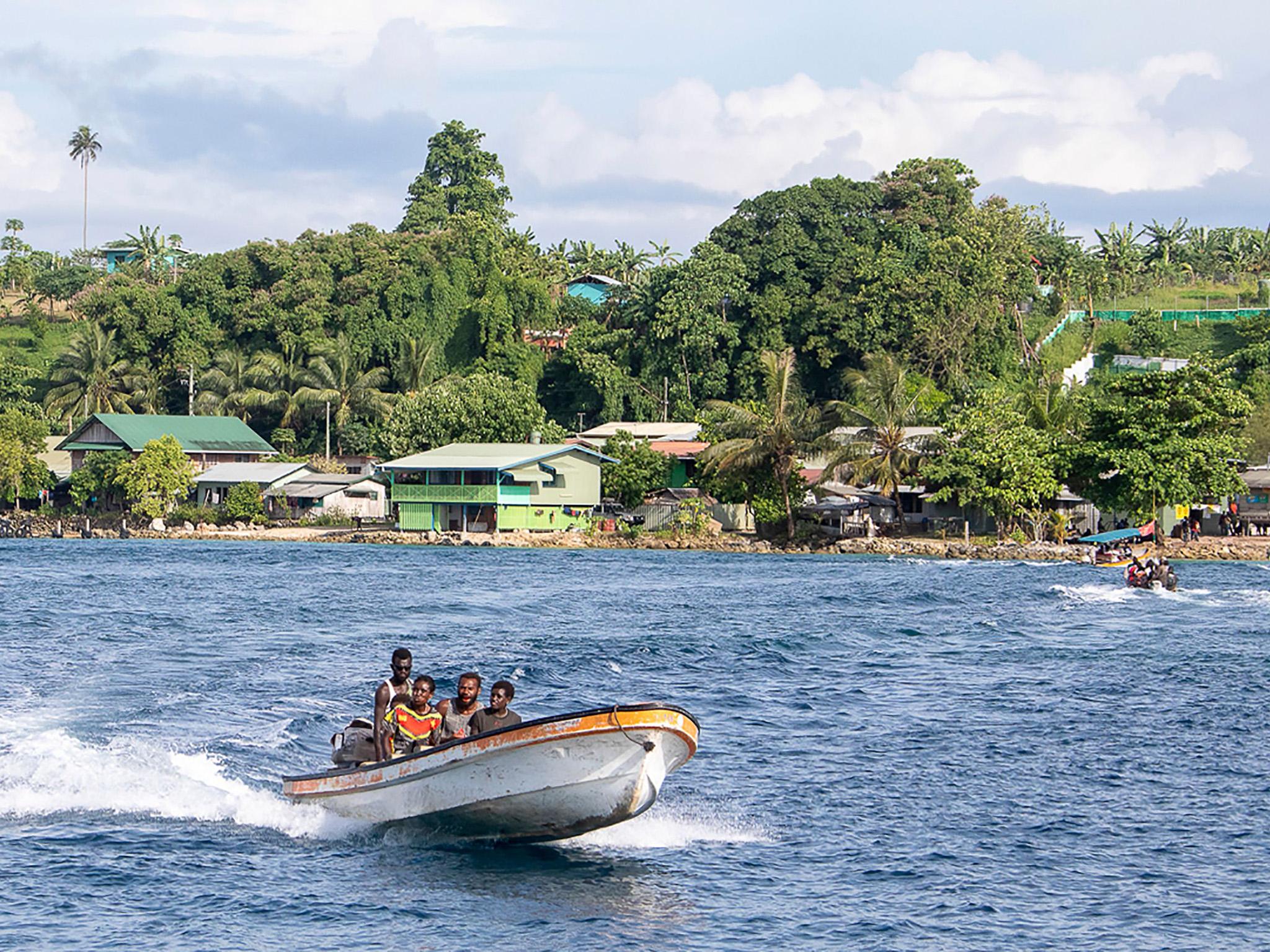Bougainville: World's newest nation expected to form as islands vote in independence poll
Region thought likely to break away from Papua New Guinea would be first new country since South Sudan

Your support helps us to tell the story
From reproductive rights to climate change to Big Tech, The Independent is on the ground when the story is developing. Whether it's investigating the financials of Elon Musk's pro-Trump PAC or producing our latest documentary, 'The A Word', which shines a light on the American women fighting for reproductive rights, we know how important it is to parse out the facts from the messaging.
At such a critical moment in US history, we need reporters on the ground. Your donation allows us to keep sending journalists to speak to both sides of the story.
The Independent is trusted by Americans across the entire political spectrum. And unlike many other quality news outlets, we choose not to lock Americans out of our reporting and analysis with paywalls. We believe quality journalism should be available to everyone, paid for by those who can afford it.
Your support makes all the difference.The Pacific islands of Bougainville are voting in a historic referendum to decide if it will become the world's newest nation by gaining independence from Papua New Guinea.
The vote will run over two weeks and is a key part of a 2001 peace agreement that ended a civil war in which at least 15,000 people died in the cluster of islands to the east of the Papua New Guinea mainland.
Experts believe the 250,000 people of Bougainville will vote overwhelming in favour of independence ahead of the other option, which is greater autonomy, but the vote will not be the final word.
The referendum is non-binding and a vote for independence would need to be negotiated by leaders from Bougainville and Papua New Guinea. The final say would go to legislators in the Papua New Guinea parliament.
Gianluca Rampolla, the UN resident co-ordinator in Papua New Guinea, said the world body has been working hard to ensure the vote is peaceful, transparent, inclusive and credible. He said there are 40 UN staffers on the ground and more than 100 international observers.
He said it is unlikely there will be violence during voting.
“They've been waiting 19 years for this historic moment,” he said. “I think they will be left with joy.”
Just over 200,000 people are eligible to vote in the referendum, with the results due in mid-December. Mr Rampolla said the extended voting period of two weeks is due to the region's rugged terrain.
“There are people coming on boats, there are people walking,” he said. “It's the rainy season. There are rough seas. Flexibility is needed to adjust on the ground.”

John Momis, president of the Autonomous Region of Bougainville, told reporters on Friday the region stood on the verge of a new socio-economic and political order.
“We are trailblazers forging a new path into the unknown with the sheer determination to face any challenge that comes our way,” he said. “We will face this together as one people and one voice to decide our ultimate political future.”
In his weekly column in the Post-Courier newspaper, Papua New Guinea prime minister James Marape said complex discussions and negotiations would be needed after the referendum before a political settlement could be reached.
The violence in Bougainville began in the late 1980s, triggered by conflict over an enormous open cast copper mine at Panguna.
The mine was a huge export earner for Papua New Guinea but many in Bougainville felt they got no benefit and resented the pollution and disruption to their traditional way of living.
The mine has remained shut since the conflict. Some believe it could provide a future revenue source for Bougainville should it become independent.
The civil war lasted for a decade before the peace agreement was signed. The other key aspects of the agreement were a weapons disposal plan and greater autonomy for the region.
Mr Rampolla said the peace agreement had been one of the few in the world that had lasted so long. He said it could end as a success story if the referendum and subsequent negotiations resulted in an outcome that everybody could support.
Press Association
Join our commenting forum
Join thought-provoking conversations, follow other Independent readers and see their replies
Comments